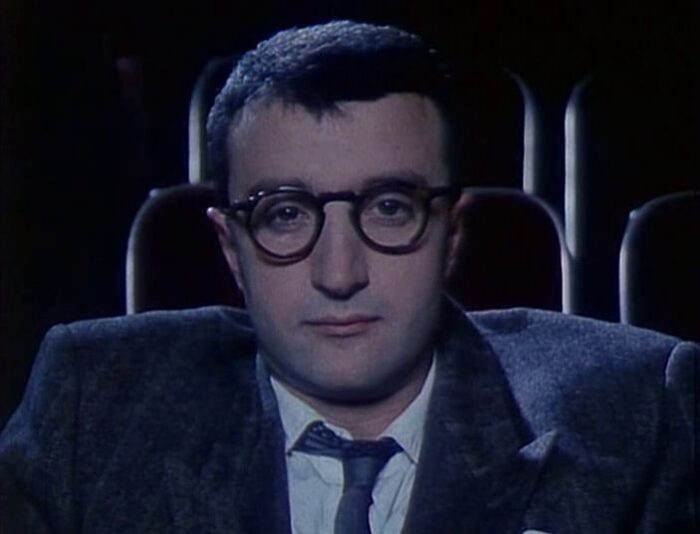Guy Moscardo and Jeanne Cavalero fall in love. But what at other times and places would be a simple affair of the heart turns at a fleapit called Alcazar into a cruel confrontation between ideological blocks: Guy sits in the first row centre, writes for Cahiers du Cinéma, and has understood that film’s greatest genius is Vittorio Cottafavi ––– Jeanne sits in the back somewhat to the side, writes for Positif, and has understood that film’s greatest genius is Michelangelo Antonioni. How on earth is this supposed to end in happiness and bliss????????
Luc Moullet started to write for Cahiers du Cinéma in 1956, and thus knows how many film historical liberties he took here – which are many! – to make his points about the madness of love and the idiocy of orthodoxy in a charmingly screwy and always ballsy fashion. When the film came out towards the end of the Cold War, it was easy to mistake it for a simple piece of nostalgic cinephile fun. The decades since have shown that Les Sièges de l’Alcazar is about much more sinister, and far more general things than mere passion for the movies – but maybe we should again learn to love the movies as if they actually meant something, as if Cottafavi vs. Antonioni was indeed a matter of life and death?
Olaf Möller
